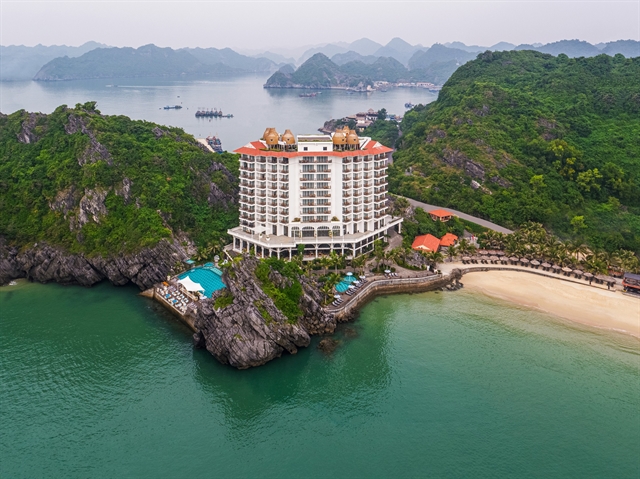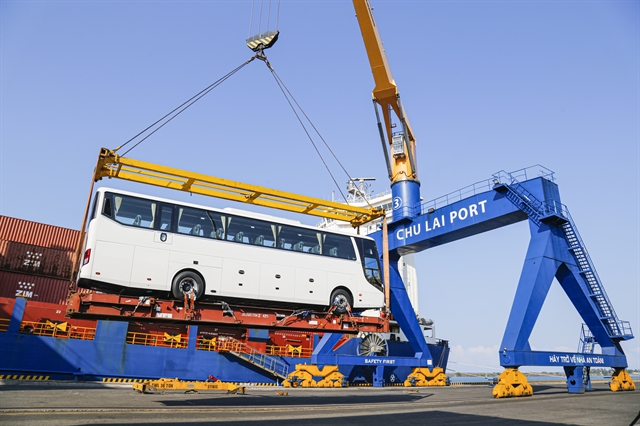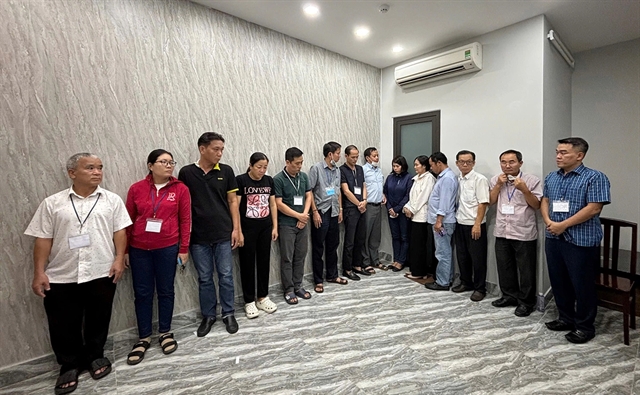 Economy
Economy

THACO shipped more than 200 Kia vehicles and auto parts to Thailand, Myanmar, Japan, and South Korea on February 17.

|
| A THACO bus being loaded on a ship at Chu Lai Port for export to Thailand. The company shipped more than 200 cars and accessories to Thailand, Myanmar, Japan, and South Korea on February 17. — Photo courtesy of THACO |
HCM CITY — THACO shipped more than 200 Kia vehicles and auto parts to Thailand, Myanmar, Japan, and South Korea on February 17.
The conglomerate’s largest export consignment to date comprised cars, buses and semi-trailers manufactured at its factories at the THACO-Chu Lai Industrial Park in Quảng Nam Province.
The exports included 80 Grand Carnival cars to Thailand, the company’s seventh consignment to its partner, Yontrakit, since December 2019.
One hundred and twenty Kia Soluto cars were shipped to Myanmar, the sixth batch to this market.
Kia cars manufactured by THACO are increasingly appreciated by customers in ASEAN countries since their quality is equivalent to cars made in South Korea and meets global Kia standards while their prices are very competitive.
In 2021, THACO plans to export 1,480 automobiles to Thailand and Myanmar, expand exports to other markets, and gradually achieve its goal of becoming a production and export base for Kia Motors cars and spare parts in the ASEAN region.
This is THACO’s first export of semi-trailers to Japan, one of the most challenging markets in the world with stringent quality requirements.
After carrying out extensive research on and several technical discussions about semi-trailer product development in the Japan the partner collaborated with Thaco to manufacture and export semi-trailers to the market.
This time THACO also exported buses to Thailand via VOLVO Group’s VOLVO Buses Corporation, one of the world’s biggest manufacturers of large buses.
THACO buses were selected by VOLVO Buses for shipping and distributing in Thailand since they met all requirements in terms of technology, quality, safety, and competitive prices and Thailand’s standards and certification requirements (with respect to design, size, ECE certificates, and others). The company uses over 60 per cent locally made parts.
The shipment kicked off THACO’s plans to export 66 buses to Thailand and South Korea this year.
In addition to cars and semi-trailers, auto parts too were exported to South Korea, including seat covers, gearshift covers, air-conditioning radiators, and specialised vehicle components for Hyundai Santafe. The consignment was worth US$200,000.
With the import tax on CBU cars within the ASEAN bloc scrapped since the beginning of 2018, many car assemblers in Việt Nam have switched to importing and distributing cars whereas THACO has been expanding production and increasing the use of local parts to serve its strategy of exporting to Southeast Asia.
This year THACO will continue to export to existing markets Thailand, Myanmar, the Philippines, the US, and Japan and expand to other ASEAN countries.
It hopes to export 2,500 vehicles (1,800 passenger cars, 70 trucks and buses and 630 semi-trailers) this year.
It expects to earn $30 million from exports of auto parts and other mechanical products (of which spare parts and accessories will account for $18 million and mechanical products for $12 million).
Exports of large numbers of cars since last year have attested to the fact that cars made in Vietnam can compete in foreign markets, which is gradually helping raise the country’s profile in the global market.
THACO plans to increase exports to ASEAN and enter new markets in Africa, West Asia, South Asia, Australia, and elsewhere. — VNS




